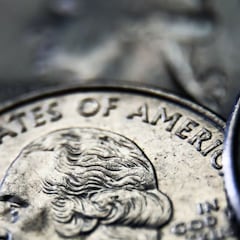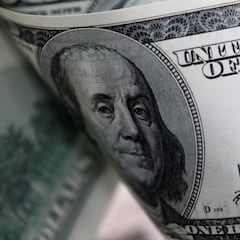Goodbye to these bills: Walmart announces that it will not accept these dollars in April 2025
If you have these dollar bills, neither retailers like Walmart nor banks will accept them. Here’s which ones and what you can do to not lose your money.

In an effort to improve the security of the monetary system, the Bureau of Engraving, the Secret Service and the Advanced Counterfeit Deterrence (ACD) Steering Committee have implemented an initiative to stop U.S. retailers, banks, and ATMs from accepting specific banknotes.
According to various reports, the dollar bills that will be rejected are all those that fall into the category of “mutilated”, that is, those that have cuts or damaged edges and are discolored. This measure applies to stores and supermarkets such as Walmart, Dollar Tree, Costco, Target and other businesses.
Currently, the U.S. Federal Reserve (Fed) issues dollar bills in seven denominations: $1, $2, $5, $10, $20, $50, and $100. While the $500, $1,000, and $10,000 bills have been out of production for some time, they are still in circulation. The only scenario in which the latter can be rejected is if they fall into the “mutilated” category, like any other unit.
How can you tell if your dollar bill is “mutilated”?
Typically banknotes get mutilated because of “fire, misuse, or even deterioration from burying money,” according to the Federal Reserve. That is, those that have cuts or damaged ends and are discolored.
What can you do with your “mutilated” dollar bills?
You will have to contact the Bureau of Engraving and Printing directly. It will require filing a mutilated currency claim. The Bureau of Engraving and Printing provides a step-by-step guide to redeeming mutilated currency.
“The BEP will evaluate the note. They have special tools to examine the authenticity and assess the full value of the note. After they do that, they can issue a check back to the consumer,” a Fed currency representative explains.
New designs in circulation
In addition to the implementation of this new security measure, the Federal Reserve will introduce new designs for the $5, $20, $50 and $100 bills in the coming years. The introduction of the new $50 bill will take place in 2028, the $20 bill in 2030, the $5 bill between 2032 and the $100 bill between 2034 according to the current redesign schedule.
Related stories
Get your game on! Whether you’re into NFL touchdowns, NBA buzzer-beaters, world-class soccer goals, or MLB home runs, our app has it all.
Dive into live coverage, expert insights, breaking news, exclusive videos, and more – plus, stay updated on the latest in current affairs and entertainment. Download now for all-access coverage, right at your fingertips – anytime, anywhere.


Complete your personal details to comment